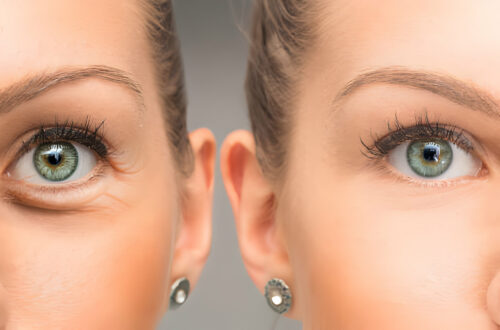Taking care of your skin isn’t just about looking good – it’s about keeping yourself healthy. Think of your skin like a superhero shield, protecting your body from all sorts of outside trouble, including the sun’s powerful rays. But there’s a bit of confusion about one superhero in our skincare routine – sunscreen. Some people think it’s only for sunny days, while others worry if it’s safe to use.
Today, we’ll break down why skincare is more than just looking pretty and highlight why sunscreen is like a superhero for your skin. Also, we’ll clear up the common misunderstandings and get into the nitty-gritty of why sunscreen is a must for everyone.
Understanding Sunscreen
SPF, or Sun Protection Factor, is like the superhero strength indicator for your sunscreen. It tells you how well the sunscreen can protect your skin from the sun’s harmful rays. The higher the SPF, the longer you can stay in the sun without getting a sunburn. For instance, if you usually get a sunburn after 10 minutes, SPF 30 theoretically lets you stay in the sun 30 times longer without burning. However, it’s important to reapply sunscreen regularly, especially after swimming or sweating, to maintain that protective shield.
Different Types of Sunscreens (Chemical vs. Physical)
Sunscreen comes in two main types: chemical and physical. Chemical sunscreens have ingredients that absorb UV rays and transform them into heat, which is then released from the skin. On the other hand, physical sunscreens act like a shield, sitting on the skin’s surface and deflecting UV rays. Chemical sunscreens are often more lightweight and easier to apply, while physical sunscreens might leave a slight white cast on the skin but are generally gentler, making them suitable for sensitive skin.
How does Sunscreen work to Protect the Skin from UV Rays?
Imagine sunscreen as an invisible force field for your skin against the sun’s UV rays. When you apply it, the active ingredients either absorb the UV rays (in the case of chemical sunscreen) or create a protective barrier on your skin (in the case of physical sunscreen). This prevents the harmful rays from penetrating your skin and causing damage. It’s like having a personal sun bodyguard that keeps your skin safe from sunburn, premature aging, and the risk of skin cancer. Understanding how sunscreen works is the key to maximizing its protective benefits for your skin.
Benefits of Using Sunscreen

Sunscreen is your skin’s knight in shining armor, shielding it from the harsh blows of sunburn. When you apply sunscreen, you’re essentially creating a barrier that prevents those pesky UV rays from turning your skin into a tomato. But it’s not just about avoiding the immediate discomfort of sunburn; sunscreen is also your secret weapon against premature aging. The sun’s rays can speed up the aging process, leading to wrinkles, fine lines, and sagging skin. Sunscreen acts as a time-defying elixir, keeping your skin youthful and resilient.
Maintenance of Skin Health and Elasticity
Think of sunscreen as your skin’s personal trainer, helping it stay in tip-top shape. Exposure to the sun’s rays can weaken your skin, making it more prone to damage and reducing its elasticity. Sunscreen steps in as the coach, reinforcing your skin’s natural defenses. Blocking harmful UV rays ensures that your skin remains healthy, firm, and bouncy. It’s like giving your skin a daily workout to keep it strong and supple for the long run.
Nobody wants a patchy, uneven complexion, and sunscreen is your ally in maintaining a flawless skin tone. Prolonged sun exposure can lead to skin discoloration and hyperpigmentation, creating dark spots that are hard to erase. By diligently applying sunscreen, you’re putting up a barrier against these unwanted skin issues. It’s like a protective shield, keeping your skin tone even and preventing those stubborn dark marks from making an appearance. So, if you’re aiming for that radiant, even complexion, sunscreen is your go-to partner in crime.
Debunking Sunscreen Myths
Let’s tackle some sunscreen myths head-on. One common misconception is that sunscreen is only necessary on sunny days. The truth is that UV rays can penetrate clouds, and your skin needs protection, even on overcast days. Another myth is the notion that once you apply sunscreen in the morning, you’re covered for the entire day. Sunscreen effectiveness diminishes over time, especially with activities like swimming or sweating, making regular reapplication crucial. Debunking these myths ensures that your sun protection game is on point, rain or shine.
Addressing Concerns About Sunscreen Ingredients
There’s a fair bit of concern about the ingredients in sunscreen, with some worrying about potential harm. Rest assured, reputable sunscreens undergo rigorous testing to ensure they are safe for use. While some individuals may have sensitivities to specific ingredients, there are various formulations available, including mineral-based sunscreens, which can be gentler on the skin. Understanding the ingredients and choosing a sunscreen that suits your skin type can help alleviate any concerns and make sun protection a worry-free experience.
Role of Sunscreen in Different Weather Conditions
Sunscreen isn’t a fair-weather friend; it’s a year-round companion. Many people assume that sunscreen is only necessary during the scorching summer months. However, UV rays are present even in winter and can reflect off surfaces like snow. Applying sunscreen should be a consistent part of your routine, whether it’s sunny, cloudy, or snowy.
Choosing the Right Sunscreen
Choosing the right sunscreen involves more than grabbing the first bottle you see. Consider factors like your skin type, activities planned, and any specific sensitivities. For oily or acne-prone skin, opt for a non-comedogenic formula. If you’re hitting the beach, water-resistant sunscreen is a must. Additionally, individuals with sensitive skin might benefit from fragrance-free or hypoallergenic options. Understanding your unique needs helps you find a sunscreen that protects and suits your skin.
Importance of Broad-Spectrum Protection
Not all sunscreens are created equal, and this is where the term “broad-spectrum” becomes crucial. A broad-spectrum sunscreen safeguards your skin from both UVA and UVB rays. UVA rays penetrate deeply, causing premature aging, while UVB rays are responsible for sunburn. By opting for a broad-spectrum sunscreen, you ensure comprehensive protection against the full spectrum of harmful rays. It’s like having an all-in-one shield that keeps your skin safe from various sun-related threats.
Tips for Proper Application and Reapplication
Applying sunscreen is an art, and mastering it ensures optimal protection. Start by applying sunscreen generously, covering all exposed skin. Don’t forget easily overlooked areas like ears, neck, and the tops of your feet. Reapplication is equally crucial, especially after swimming, sweating, or spending extended periods outdoors. The general rule is every two hours, but it may need to be more frequent in certain circumstances. Making sunscreen application a habit and incorporating it into your routine ensures you’re consistently guarded against the sun’s rays, maintaining healthy and protected skin.
Sunscreen for Different Skin Types
Sensitive skin requires a little extra TLC, and the right sunscreen can make all the difference. Opt for a sunscreen labeled “hypoallergenic” or “fragrance-free” to minimize the risk of irritation. Mineral sunscreens featuring zinc oxide or titanium dioxide tend to be gentler on sensitive skin. Patch testing new products is also a wise move to ensure compatibility.
Best Sunscreens for Oily, Dry, and Combination Skin
Different skin types have distinct needs when it comes to sunscreen. If you have oily skin, look for oil-free, non-comedogenic options that won’t clog pores. Individuals with dry skin benefit from sunscreens with added moisturizing ingredients, such as hyaluronic acid or glycerin. Combination skin requires a balanced approach – consider using different sunscreens for different areas of your face if necessary.
However, sunscreen should be for everyone, regardless of skin tone. Unfortunately, many sunscreens can leave an undesirable white cast on darker skin tones. Inclusive options, often labeled as “sheer” or “invisible,” cater to a broad range of skin tones without compromising effectiveness.
Conclusion
So, here’s the deal: sunscreen is like your skin’s superhero. It’s not just about avoiding sunburns and wrinkles; we’ve talked about how it’s crucial in preventing serious stuff like skin cancer. We busted some myths and sorted out concerns about sunscreen, making it clear that it’s not just a summer thing—it’s an all-year-round necessity.
Whether your skin is sensitive, oily, or anything in between, there’s a sunscreen out there for you. Think of putting on sunscreen as a daily act of self-love. It’s not just a beauty thing; it’s about taking care of the skin that’s with you through all of life’s adventures. So, make it a habit; your skin will thank you!



